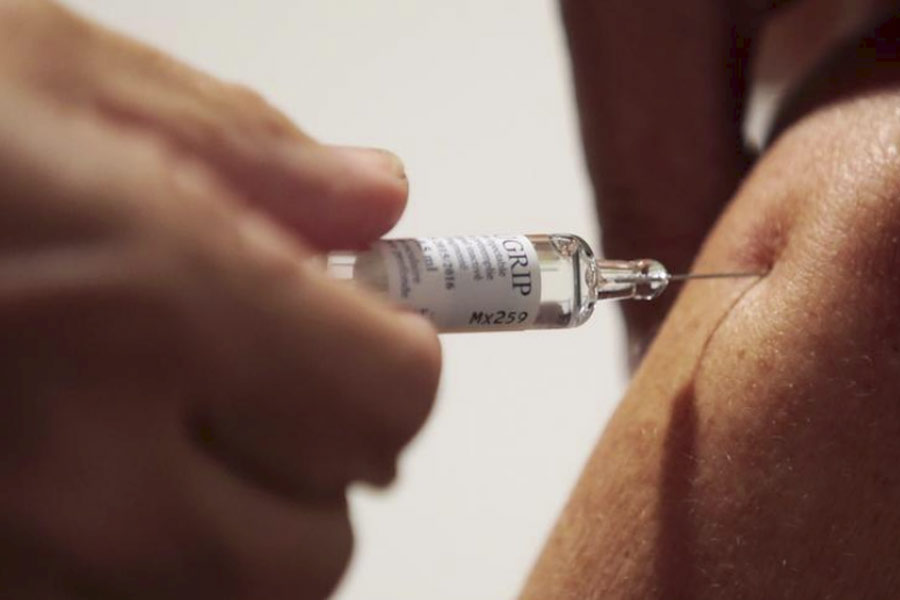Being in a happy mood boosts the effectiveness of the flu jab

If you're in a foul mood, better not go for a flu jab.
The reason? It's likely to be ineffective - especially for senior citizens.
But those who skip happily into a clinic for the vaccine are more likely to derive benefits from it and remain in the pink of health.
A study on how one's mood can affect vaccine outcomes by Nottingham University found that people who were happy when they went for their autumn flu jab turned out better protected from falling sick.
A good mood boosts the immune system, which in turn, helps it to react properly to a vaccination, explained the university researchers. Being in the right state of mind on the day of an injection could cause the body to produce up to 14 per cent more antibodies, upping the level of protection.
Professor Kavita Vedhara from the university's division of primary care, said in the university press release: "Vaccinations are an incredibly effective way of reducing the likelihood of catching infectious diseases. But their Achilles heel is that their ability to protect against disease is affected by how well an individual's immune system works. So people with less effective immune systems, such as the elderly, may find vaccines don't work as well for them as they do in the young.
"We have known for many years that a number of psychological and behavioural factors such as stress, physical activity and diet influence how well the immune system works and these factors have also been shown to influence how well vaccines protect against disease.."
The research team decided to embark on the study after wondering why the flu shot was only effective in 17 to 53 per cent of people over age 65, compared to 70 to 90 per cent for younger people.

While it's not clear exactly how moods affect the efficacy of the vaccine it's possible that certain stress hormones might be involved, said the study's lead author Kieran Ayling, a researcher at the university.
The team measured negative mood, positive mood, physical activity, diet and sleep three times a week over a six-week period in a group of 138 older people due to have their flu jab.
Then they examined how well the jab was working by measuring the amount of influenza antibody in the blood at fourth and 16th weeks after the vaccination.
The results showed that of all of the factors measured, only positive mood over the six-week observational period predicted how well the jab worked - with good mood associated with higher levels of antibody, according to the university's press release.
In fact, when the researchers looked at influences on the day of vaccination itself, they found an even greater effect on how well it worked, accounting for between 8 and 14 per cent of the variability in antibody levels, it said.
So, if you're one who's afraid of needles, force yourself to put on a brave smile or watch a funny video first before taking that shot.
chenj@sph.com.sg